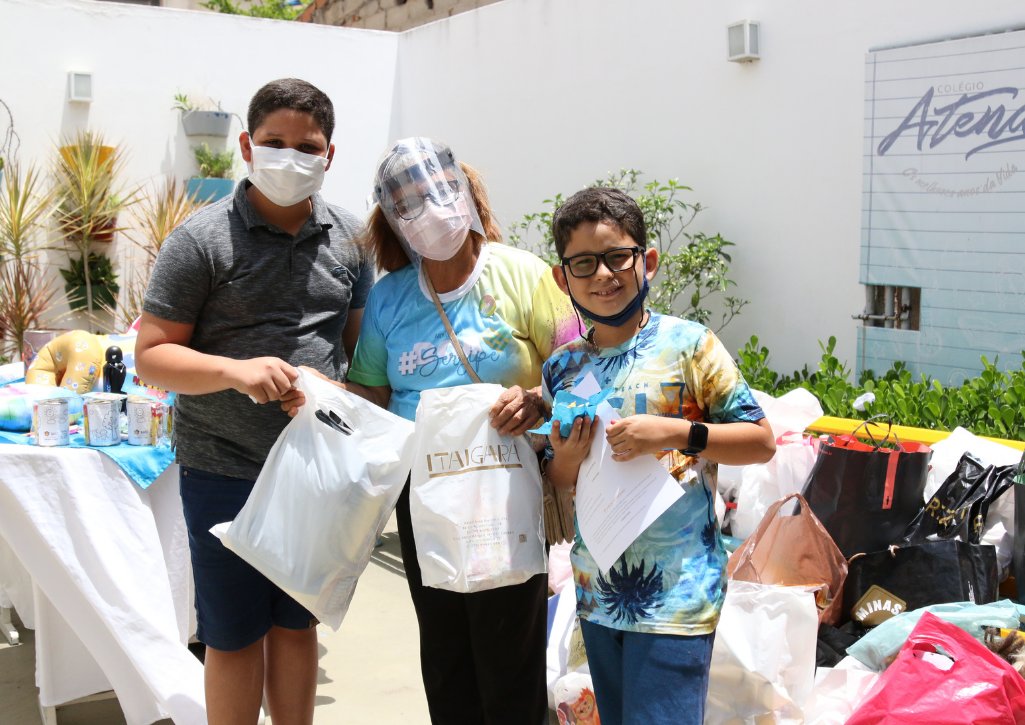The essence of African generosity goes far beyond monetary contributions. It is steeped in traditions of community solidarity, mutual support, and collective identity, manifested through a range of long-standing and evolving traditions and practices.
Global philanthropy research often paints a uniform picture of African giving, with generalizations that fail to capture the diversity, nuance, and depth of giving narratives that have stood at the core of African communities for generations; narratives that debunk stereotypes and biases, offering a more authentic portrayal of the continent.
Building on and linking to existing efforts to reframe narratives of African philanthropies, GivingTuesday and TrustAfrica are embarking on an exciting journey to launch an initiative, supported by National Philanthropic Trust, to make visible and amplify the rich, varied traditions and practices of African giving. Our goal is to showcase content about Africans – created by Africans – placing African giving traditions at the forefront of global philanthropy conversations.
Over the next few months, we aim to undertake a pilot project that will source and collate 20 articles covering different aspects of African generosity. See here for more detail on why we believe this is important and how we aim to go about it. Making visible the rich and diverse giving on the continent can only be a collaborative process, and we would welcome engaging with you on this.
For information on how to help us gather stories, contact Ogo Chukwudi at chukwudi@trustafrica.org or Dion Mcdougal at dion@givingtuesday.org
By Halima Mahomed, TrustAfrica & Catherine Mwendwa, GivingTuesday Africa Hub
While the word ‘philanthropy’ is not used much in Africa, it is a central part of African identity. Embedded within everyday practices and traditions, majority of African giving is rooted in values of solidarity, reciprocity and collective humanity that underpin African identity and social relations. Here giving happens from a place of scarcity as well as abundance, not as an afterthought dependent on excess resources. Consequently, philanthropy in Africa is rarely just transactional. Both the act of giving and the gift itself hold value.
Multiplicity and depth
While the anchors underlying African giving systems are common, and there are many shared traditions/practices, it is important to recognize and make visible its diversity. Terms like Ubuntu (I am because you are), kujitolea (to volunteer or sacrifice), kuchangia (to contribute), ncendo (which links help to humanity), fard kifaaya (duties incumbent on the community), undungo (brotherhood) and kufaana (to be of help) are just some expressions that reflect multiple underpinnings of African philanthropy. Beyond these expressions, however, are a variety of practices like ukusisa, a time-bound interest-free lending of productive agricultural assets. Aaro, ilimo, mrimo and urimzigo refer to different forms of pooled labor for asset development and waqf khayri refers to community-focused endowments. Stokvels, tontines, esusu, ayyuto, idir, bataka all refer to rotating pooled savings to support individuals in times of celebration, crises and death or for community investments. Ondjambi and owe refer to voluntary care work when someone is ill and sadaqah, zakat, ushur, okweshumi, idamewa refer to faith-based giving practices. These are but a handful of examples in what is a sea of giving practices that exist but are rarely documented within formal knowledge building on philanthropy.
Distinguishing narrative elements
They are also rarely recognized outside the continent as part of the philanthropic field, in part because they differ so much from the dominant global-North philanthropic narrative which focuses primarily on top-down, rich-to-poor, transactional, professionalized, and monetary-based structures. It is thus vital to understand the distinguishing elements of an African philanthropy narrative, which in addition to being rooted in foundations of solidarity and reciprocity, are informed by broad notions of kinship, proximity, and association (though giving to strangers and to institutions are also present). Alongside one-to-one giving, these often take on associational (though not formally registered) mechanisms, and faith-based and faith-inspired institutions also play an important role in mediating and redistributing resources. Within this narrative, the giving of time, assets, influence, expertise, labor, goods, services, and contributions toward civic action are equally worthy of recognition as philanthropic, and remittances and diaspora giving associations often contain nuanced mechanisms that extend beyond the impact on one’s immediate family. Lastly, scale, strategy, and asset building are contextually understood and addressed, and giving serves a range of functions from social safety nets to asset building to social cohesion.
Looking ahead
While knowledge building on African narratives of giving are intensifying, there is still much work to be done to fully realize its depth, breadth, and impact. Thus we need significant efforts to (i) understand the long-term and cumulative roles and influences of African giving systems, (ii) to explore the possibilities that could open up if these giving systems were well understood within the development context (iii) to consider how to connect giving systems to spaces that enable local agency to shape demands on systemic level inequities and (iv) to investigate where technological and other contextual changes can leverage or create space for new/adaptive giving mechanisms – without destroying existing ones. In a context where modes of research have too often been extractive and not aligned to contextual realities, we also need to actively modify research and data collection methodologies on philanthropy to include different types of evidence building on our narratives – from lived experience to oral histories to alternate forms of documentation and cross analysis from different disciplines to name a few.
In a context where, for too long, our stories have been told by others, asserting our own narratives of philanthropy and recognizing the immense sharing and redistribution of resources that happens within the continent takes on significant value not just in broadening a new global definition of philanthropy, but in challenging the very prevalent representations that see the continent as consistently taking from others, while not doing much to support itself. In doing so, we also need to explore linkages with other geographies where giving behaviors are rooted in notions of solidarity, reciprocity and collective humanity so that we not only deepen African philanthropic narratives but advocate for a new global definition of philanthropy that is rooted in our varying and multiple geographies, narratives, ideas and practices.
This effort to make visible African narratives, traditions, and practices of giving is one part of deepening our narrative. As we do so, we extend an invitation to you to join us on this journey and share your lived experience and knowledge on African giving. It is only through a collective effort that we can truly reflect the richness and nuance of our narrative.
Note: This article draws heavily from the publication Our Giving: African Philanthropy and the Narrative Divides (Mahomed 2023). A detailed bibliography of all sources used here is contained within that publication.



